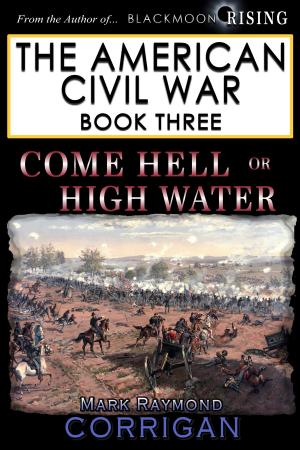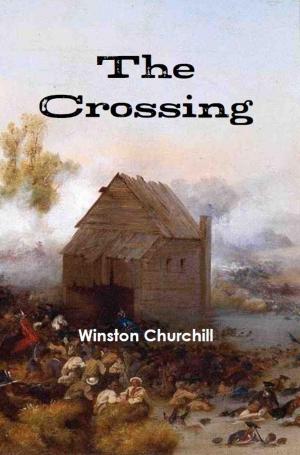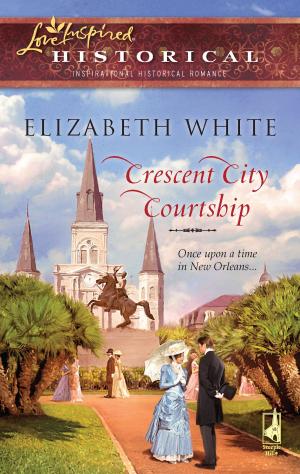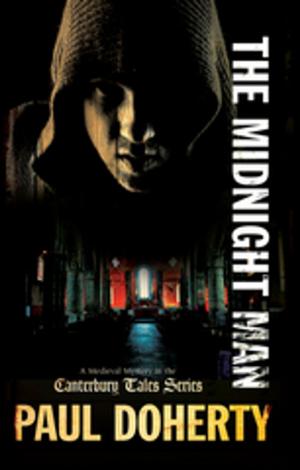Seeing and Hearing
Biography & Memoir, Artists, Architects & Photographers, Nonfiction, Art & Architecture, Historical| Author: | George W. E. Russell | ISBN: | 1230000267382 |
| Publisher: | LONDON E. GRANT RICHARDS | Publication: | September 11, 2014 |
| Imprint: | Language: | English |
| Author: | George W. E. Russell |
| ISBN: | 1230000267382 |
| Publisher: | LONDON E. GRANT RICHARDS |
| Publication: | September 11, 2014 |
| Imprint: | |
| Language: | English |
Example in this ebook
I
THE CORONATION
And so the great Act draws near—the "high midsummer pomp" of Patriotism and Regality and Religion—the "one far-off divine event" to which the whole social creation has moved since the day was appointed and the preparations began. A thousand pens will picture the Coronation as it actually occurs. Writing in advance, I can only contemplate it as a magnificent ideal, and describe it as it strikes not the eye and ear but the heart, the imagination, and the historic sense.
First and foremost and above all else, the Coronation is a religious act. It is imbedded in the very heart of the great Christian service of the Holy Eucharist. Litany and Introit and Gospel and Creed lead up to it, and it in turn leads on to Te Deum and Offertory and Consecration and Communion. But though (or perhaps because) it is thus supremely and conspicuously religious, the Coronation is national and secular and historical as well. Other nations do not crown their Sovereigns. Some have no crowns to give, and others are in doubt about the rightful recipients; in some, revolutions have shattered the immemorial landmarks, or the sharp sword of civil war has severed the sacred thread of succession, or the State itself is a mushroom growth of yesterday, with no roots and fibres striking deep down to the bedrock of the national life.
But here in England we crown our kings as we have crowned them for a thousand years, and our act of crowning is the august symbol of a nation's story and a people's will. For before ever the ministers of God approach the altar, before the sacred emblems of sovereignty are hallowed, before the Christian's Mysteries begin, before the Eternal Spirit is invoked and the consecrating unction bestowed, the English people plays its part, and, through the mouth of its chief citizen asserts its fundamental place in the system of the Kingly Commonwealth.
"Sirs, I here present unto you King Edward, the undoubted King of this realm; wherefore all you who are come this day to do your homage, are you willing to do the same?" And, as the King stands up and turns and shows himself four times to the assembled freemen, they "signify their willingness and joy by loud and repeated acclamations, all with one voice crying out, 'God Save King Edward.'"
And here I borrow from one who touches as no other living man can touch these dramatic solemnities of our national life (for I know he will consent to the borrowing), and I say that this is as noble as it is intelligible. "It embodies the splendid liberty with which a free people asserts its claim to have nothing imposed upon it in the dark, no tyrannous rule set over it which it has not measured and considered and acknowledged in the open light of Heaven." And then the whole great company falls to prayer, and the Archbishop, who has hitherto played his part as the first citizen of England and the greatest subject of the Crown, takes up a still higher function, and goes up, vested to the altar and begins the Service of the Eucharist, and, as a priest, invokes the supreme sanction of the Eternal. And then the majestic course of the rite is broken off in the very centre, and, with every act and feature and ceremony which can most forcibly express the solemnity of the transaction, the Archbishop demands of the King, in the face of God and the Church and the people, whether he will promise to rule England in due obedience to law and with sacred regard to Justice, Mercy, and Religion. And the King gives his promise, and, kneeling at the altar, confirms it with an oath upon the Holy Gospel.
To be continue in this ebook................................................................................................................
Example in this ebook
I
THE CORONATION
And so the great Act draws near—the "high midsummer pomp" of Patriotism and Regality and Religion—the "one far-off divine event" to which the whole social creation has moved since the day was appointed and the preparations began. A thousand pens will picture the Coronation as it actually occurs. Writing in advance, I can only contemplate it as a magnificent ideal, and describe it as it strikes not the eye and ear but the heart, the imagination, and the historic sense.
First and foremost and above all else, the Coronation is a religious act. It is imbedded in the very heart of the great Christian service of the Holy Eucharist. Litany and Introit and Gospel and Creed lead up to it, and it in turn leads on to Te Deum and Offertory and Consecration and Communion. But though (or perhaps because) it is thus supremely and conspicuously religious, the Coronation is national and secular and historical as well. Other nations do not crown their Sovereigns. Some have no crowns to give, and others are in doubt about the rightful recipients; in some, revolutions have shattered the immemorial landmarks, or the sharp sword of civil war has severed the sacred thread of succession, or the State itself is a mushroom growth of yesterday, with no roots and fibres striking deep down to the bedrock of the national life.
But here in England we crown our kings as we have crowned them for a thousand years, and our act of crowning is the august symbol of a nation's story and a people's will. For before ever the ministers of God approach the altar, before the sacred emblems of sovereignty are hallowed, before the Christian's Mysteries begin, before the Eternal Spirit is invoked and the consecrating unction bestowed, the English people plays its part, and, through the mouth of its chief citizen asserts its fundamental place in the system of the Kingly Commonwealth.
"Sirs, I here present unto you King Edward, the undoubted King of this realm; wherefore all you who are come this day to do your homage, are you willing to do the same?" And, as the King stands up and turns and shows himself four times to the assembled freemen, they "signify their willingness and joy by loud and repeated acclamations, all with one voice crying out, 'God Save King Edward.'"
And here I borrow from one who touches as no other living man can touch these dramatic solemnities of our national life (for I know he will consent to the borrowing), and I say that this is as noble as it is intelligible. "It embodies the splendid liberty with which a free people asserts its claim to have nothing imposed upon it in the dark, no tyrannous rule set over it which it has not measured and considered and acknowledged in the open light of Heaven." And then the whole great company falls to prayer, and the Archbishop, who has hitherto played his part as the first citizen of England and the greatest subject of the Crown, takes up a still higher function, and goes up, vested to the altar and begins the Service of the Eucharist, and, as a priest, invokes the supreme sanction of the Eternal. And then the majestic course of the rite is broken off in the very centre, and, with every act and feature and ceremony which can most forcibly express the solemnity of the transaction, the Archbishop demands of the King, in the face of God and the Church and the people, whether he will promise to rule England in due obedience to law and with sacred regard to Justice, Mercy, and Religion. And the King gives his promise, and, kneeling at the altar, confirms it with an oath upon the Holy Gospel.
To be continue in this ebook................................................................................................................















